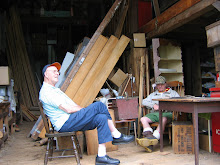






Fryeburg, Maine, at the head of the Saco River Valley. but just below North Conway, New Hampshire, contributes Maine's most told tale of Maine's colonial war's Indian battles. It was the fight between a group of colonial mercenary scalp hunters from Massachusetts and the home village site of the Pequawket Native American tribe. The fight took place in 1725. It was considered inconclusive as to victor at the time with many killed and wounded on both sides. Of greater significance was that both sides were scattered and disordered in their retreat-escape flights, compounding the inconclusive perception. The short version of the long term conclusion was that the Pequawket tribe fled never to return and this battle became a… last battle …clearing the Maine frontier for settlement. This consideration is valid but the Maine settlement was confined to the coast until the 1760's. There is plenty of description of the battle via Google and I am not going to cover that.
What I am presenting in this post is my life long quest to find a Maine rare book about the battle. When the battle was fought, a few straggling survivors first emerged from the northern New England wilderness near Bradford, MA. There, Thomas Symmes first gave and then PUBLISHED (Boston, 1725, in two printings) his sermon "LOVEWELL LAMENTED" recording …the battle of Piggwacket… as narrated by the straggling survivors he interviewed. I add that several other survivors emerged from the wilderness in Maine by going down the Saco River thereby traveling a route that would soon become the classic route we traveled in our Littleton, NH post.
The Fryeburg village site, with it's stunning and abundant interval lands bordering the Saco River, promptly attracted settlers once the "Indian Menace" was confirmed as gone. By 1766 the town site of Fryeburg was parceled out and homesteads constructed. The original log cabin quickly gave way to the classic colonial cap style farm once the mills were built and the logs sawed to boards. I show an early (1860's) stereoview photograph of "Oldest house in Town, the Evans place Fryeburg Me" (in ink on the verso). At the 1766 date there were two Evans, brothers (?); John and David and they owned four or five of the original land parcels. This homestead would have been one of theirs on one of their land parcels. I don't know who or which. Although earliest settlers, there is very little mention of these Evans in the subsequent histories of Fryeburg. Usually that means a literacy problem in the family with little or no "writing down". No matter for the photograph speaks for itself showing a colonial homestead with garret spaces of the type I hunt for and relish. THIS photograph shows EXACTLY the kind of "old house" and "attic" I seek to creep.
With this age (colonial settlement) and this development (numerous homesteads just like this up and down the Saco River as far as the eye can see), Fryeburg quickly elevates in the antiquarian's mind's eye as a destination to "hunt old things". THIS fine quality is further enhanced by prosperity and literacy in the community AT THE TIME (colonial era) and STILL (today). The link pin of Fryeburg literacy is a Maine rare book.
After the original Symmes "Lovewell Lamented" a gap of printings of the narrative of the Piggwacket fight takes place. It is not until 1818 in Portland, Maine that an… obtainable… edition of the Pequawket fight is printed. Pictures of a copy of this edition follow the stereoview images. Notice the "dog eared", worn, "read to death" and hand-sewn-back-together condition of the pamphlet. Please also notice that in the second image of the title page, I have included the imprint (the name and place of the printer usually found at the bottom of the title page as found here). This is a copy I currently own and one of a half dozen I have bought and sold during my forty years as a dealer.
The word "obtainable" is used because… delightfully and astonishingly… Fryeburg, Maine had an early, pre-Maine statehood printer THERE who PRINTED. In fact, in 1799 Elijah Russel printed in Fryeburg his edition of Symmes' narrative as "THE HISTORY OF THE FIGHT OF THE INTREPID JOHN LOVELL… IN FRYEBURG" with a Fryeburg imprint. To review, a man had brought a printing press to Fryeburg, set it up in a farm homestead like the stereoview we show and there occasionally …printed… for profit. WAY out in the Maine woods… Russel printed an edition of Pequawket… in his farm house… in 1799… for his neighbors to buy and read (?). That is what he did. Find a copy?
How many copies does one think he printed? Are there copies known? Do I have or have had one? Russel couldn't have printed many copies. One hundred would have been a lot and costing him money and time. Also, the market for "a book" was skimpy in the Fryeburg area. There are copies known. Williamson, in his 1896 Bibliography of Maine notes THEN that "perfect copies of edition are very rare. No copy is known to exist which contains the title page". THAT last is a line in the Saco River sand and… MERGED with a line-in-sand review of the 1818 read-to-death copy I picture… a "RARE MAINE BOOK" we have. I have looked for a copy all my antiquarian life and have yet to ever "see one" "on the loose". I never go up the Saco River Valley or near Fryeburg without reviewing my life long hunt for this true rare Maine Book. For most of my career my contacts with other "rare Maine book" people about this book is that they "didn't know it exists" until I told them about it. A first edition either printing of Symmes' LAMENT would be worth $15000.. My Portland edition, $250-$400.

No comments:
Post a Comment